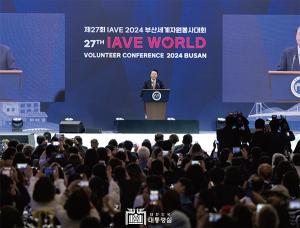 |
||
Trends in the Korean startup market in 2024 are changing rapidly, with tech startups taking center stage. Tech startups are centered on deep tech, which digs deep into specific technologies.
 |
The safest, surest way for deep tech startups to take on big shots
Intellectual property rights, such as inventions, trademarks, and designs, are crucial to business. When a company has a patent on a technology, it not only provides momentum for growth, but it can also help scale up by providing a proprietary competitive advantage. Many Silicon Valley companies have built their success on ingenious technology and patents. Gwang Hwa Moon International Patent & Law Firm (CEO Seonghoon Hong), which first opened in the summer of 2020, specializes in corporate patents. “Patent management is a management that considers patents as an important resource among intellectual property rights and effectively combines them with product development, production, and sales processes to secure a company’s unique competitiveness. For a deep-tech startup, utilizing patents from the R&D planning stage through dedicated personnel and creating an impenetrable huddle according to market conditions is almost the only way to compete with the huge capital and infrastructure of large companies.” says CEO Hong. For startups, patents are the first step to obtaining various certifications, and are also used to secure sufficient funds necessary for product production, market development, and promotion through technology financing (Technology Credit Guarantee Fund, Development Technology Commercialization Fund). As property rights, patents are valuable as capital. This means that the patent portfolio a deep-tech startup builds as it grows will affect the value and creditworthiness of the company later on, and that its ongoing R&D efforts will be rewarded at the exit stage.
 |
Samsung Electronics’ semiconductor patent attorney joins the team
“Deep-tech startups should consider technology for high-speed growth as their core value from the start. Once the core technology is determined, a strong patent portfolio should be built, and it should be actively utilized for corporate management, not just for technology monopolization.“ says Hong. Recently, Samsung Electronics’ semiconductor patent attorney Jiwoon Yang has joined the team. CEO Hong has also worked on patents for LG Electronics and the Korea Institute of Energy Research, securing patent portfolios for startups spun out of Samsung Electronics’ C-lab project. he participated in a webinar on ‘Utilization of Intellectual Property, Startup Business Growth Strategy’. He signed a business agreement with DeepStone Partners, which provides optimal solutions for business operations with a global expert group consisting of domestic and foreign accountants, lawyers, and appraisers, and promised to focus more on providing patent application services to protect intellectual property rights.
 |
Interview with patent attorney Jiwoon Yang
Q. Please tell us a little about yourself.
Yang. I practice information and communication patents, trademarks, and designs, and previously worked on semiconductor patents for Samsung Electronics. After meeting Hong, I saw the potential for what I could do as a patent attorney and joined to pursue that dream.
Q. As a patent attorney, I’m sure you’re aware of the importance of structuring a corporate patent portfolio. What role do you play and what advice do you give?
Yang. Being in charge of Samsung Electronics’ semiconductor patents helped me realize the importance of a startup’s patent portfolio. Deep-tech startups are often pioneering markets with unique technologies or entering new products and services. My role is to help them find good ideas and get them patented, both qualitatively and quantitatively. Patents help them gain access to networks, human resources, and funding, which can lead to prototyping and production design.
Q. Did you major in related field?
Yang. I majored in new materials engineering and obtained certificates as a metallurgist and technical credit evaluator. In the army, I served as a communications station commander, which gave me a good understanding of information and communication security. I’m in charge of trademark design registration and resolving trademark design disputes and also engaging in technology evaluation and investment in startups.
Q. Tell us about your memorable cases.
Yang. I have establish a direct investment fund based on technical evaluation of startups, listen to IR presentations of technologically excellent companies, and meet with representatives to make actual investments. I also evaluate patents of many companies through ‘Axis Value,’ the patent evaluation system of the Korean Patent Attorneys Association. In a memorable assignment, I was responsible for a semiconductor patent for Samsung Electronics and contributed to the patent being granted in the U.S. despite eight rejection letters. Another memorable experience was working with a salmon company when they were unsure about their technology, and I worked with them to generate ideas and file patents. One more thing I would like to add is that I submitted a response as a patent attorney on behalf of a client who had a trademark-related issue and was cleared of the charges.
Q. Point out three important things for startups.
Yang. I would say intellectual property, networking, and investment. Intellectual property rights can brand your company, monopolize your technology or prevent disputes from competitors, and set the direction of your company’s growth. Businesses can’t grow alone, they need help, and networking can help you get investment. By getting invested, you can take your company to the next level and become a more valuable company in the long run.
Q. What is your next move?
Yang. I’d like to take a startup’s unfinished idea and, through consultation, develop the technology together and protect it as intellectual property. I want to protect the company’s intellectual property and invest in its future so that we can grow together. I would also like to set up an investment vehicle to invest in startups and help them with their intellectual property strategy.
지윤석 기자 jsong_ps13@naver.com







